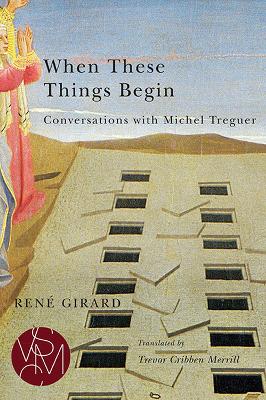Studies in Violence, Mimesis, and Culture
2 total works
In this lively series of conversations with writer Michel Treguer, Rene Girard revisits the major concepts of mimetic theory and explores science, democracy, and the nature of God and freedom. Girard affirms that "our unprecedented present is incomprehensible without Christianity." Globalisation has unified the world, yet civil war and terrorism persist despite free trade and economic growth. Because of mimetic desire and the rivalry it generates, asserts Girard, "whether we're talking about marriage, friendship, professional relationships, issues with neighbours or matters of national unity, human relations are always under threat." Literary masters including Marivaux, Dostoevsky, and Joyce understood this, as did archaic religion, which warded off violence with blood sacrifice. Christianity brought a new understanding of sacrifice, giving rise not only to modern rationality and science but also to a fragile system that is, in Girard's words, "always teetering between a new golden age and a destructive apocalypse." Treguer, a sceptic of mimetic theory, wonders: "Is what he's telling me true...or is it just a nice story, a way of looking at things?" In response, Girard makes a compelling case for his theory.
"Why is there so much violence in our midst?" Rene Girard asks. "No question is more debated today. And none produces more disappointing answers." In Girard's mimetic theory it is the imitation of someone else's desire that gives rise to conflict whenever the desired object cannot be shared. This mimetic rivalry, Girard argues, is responsible for the frequency and escalating intensity of human conflict. For Girard, human conflict comes not from the loss of reciprocity between humans but from the transition, imperceptible at first but then ever more rapid, from good to bad reciprocity. In this landmark text, Girard continues his study of violence in light of geopolitical competition, focusing on the roots and outcomes of violence across societies latent in the process of globalisation. The volume concludes in a wide-ranging interview with the Sicilian cultural theorist Maria Stella Barberi, where Girard's twenty-first century emphases on the continuity of all religions, global conflict, and the necessity of apocalyptic thinking emerge.

